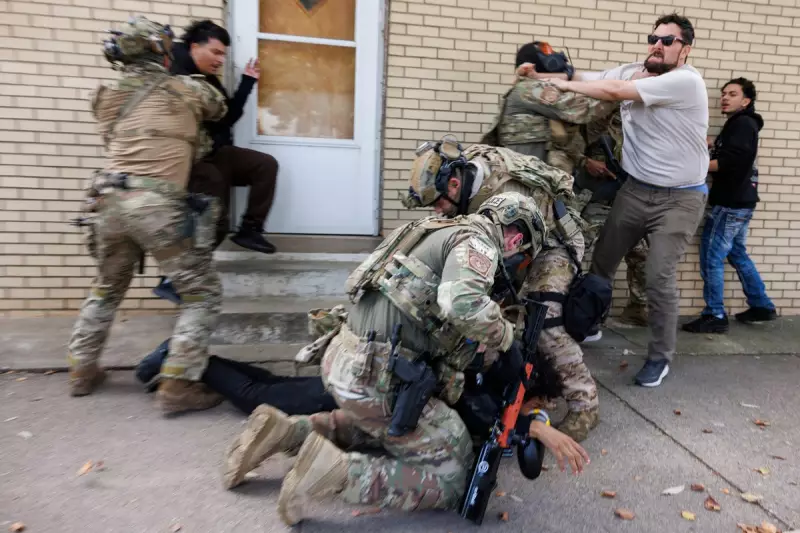
In a dramatic escalation of rhetoric surrounding America's immigration debate, former President Donald Trump has demanded the immediate deployment of National Guard troops to Chicago, describing the city's migrant situation as having reached breaking point.
Trump's Call to Arms
The Republican frontrunner took to his Truth Social platform to issue a stark warning, stating Chicago has been 'destroyed' by the influx of migrants. His comments come amid growing tension between Texas authorities and the Biden administration over border enforcement strategies.
'I call on Governor Pritzker of Illinois to immediately deploy the National Guard to Chicago,' Trump declared, framing the situation as an urgent national security concern requiring military intervention.
Supreme Court Ruling Fuels Tensions
The political firestorm intensified following a recent Supreme Court decision that temporarily allows Border Patrol agents to remove razor wire installed by Texas officials along the US-Mexico border. This ruling has become a flashpoint in the ongoing battle between state and federal authorities over immigration enforcement.
Texas Governor Greg Abbott has defied the federal government, arguing states have a constitutional right to defend their borders. The standoff has prompted 25 Republican governors to express support for Texas' position, creating one of the most significant constitutional crises in recent immigration history.
Chicago's Mounting Challenges
Meanwhile, Chicago continues to grapple with the practical realities of receiving thousands of migrants, many bused from southern border states. The city has struggled to provide adequate shelter and resources, leading to strained public services and growing local opposition.
Mayor Brandon Johnson's administration faces mounting pressure from both sides of the political spectrum as it attempts to balance humanitarian concerns with practical limitations.
Political Implications
Trump's intervention signals his intention to make immigration a central issue in the upcoming presidential campaign. His call for military deployment in an American city represents an unprecedented escalation in political rhetoric surrounding border policy.
As the 2024 election approaches, the battle over immigration appears set to dominate national discourse, with Chicago becoming an unexpected focal point in this deeply divisive debate.





